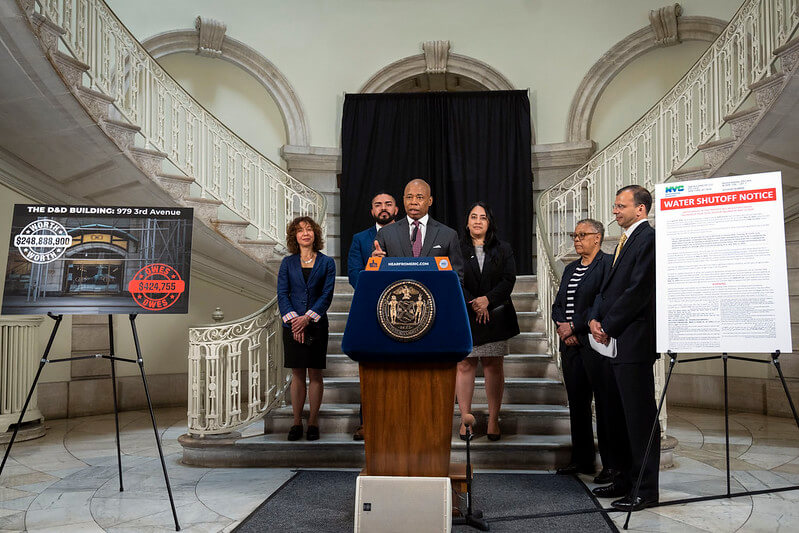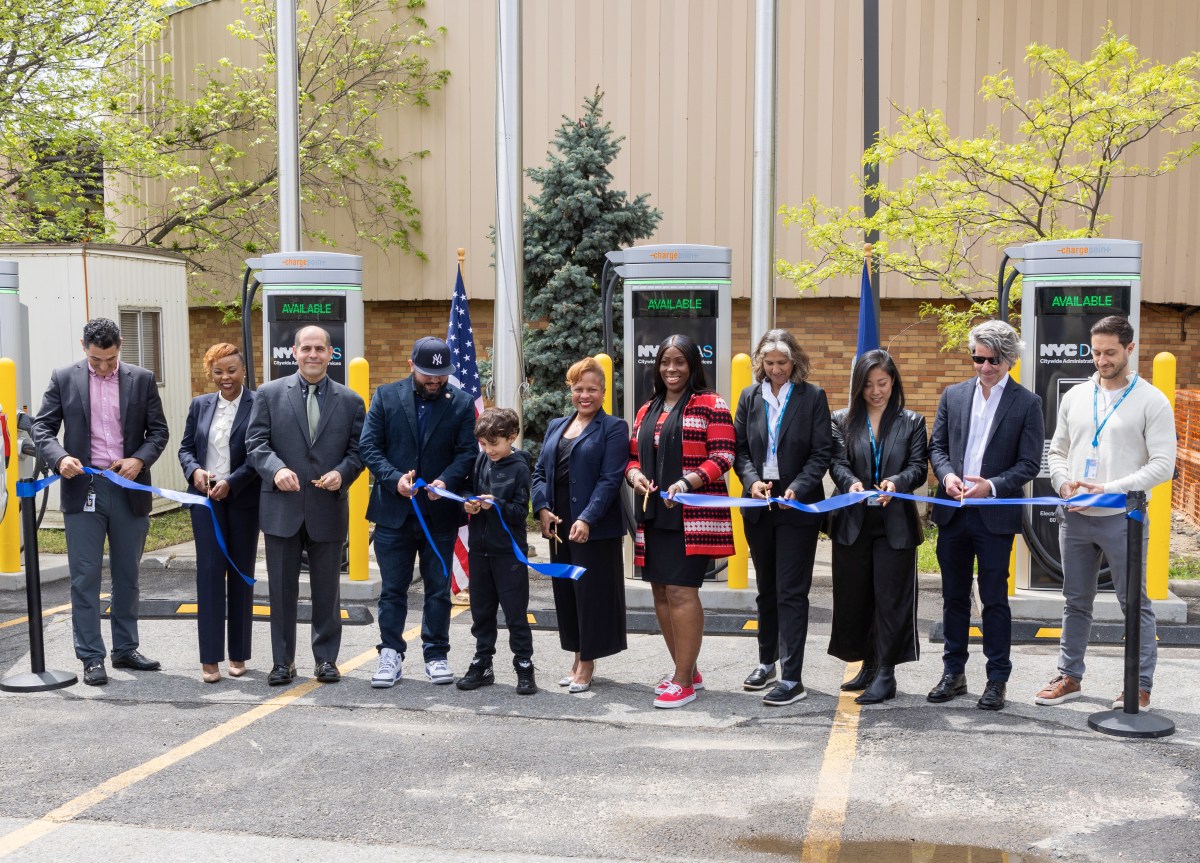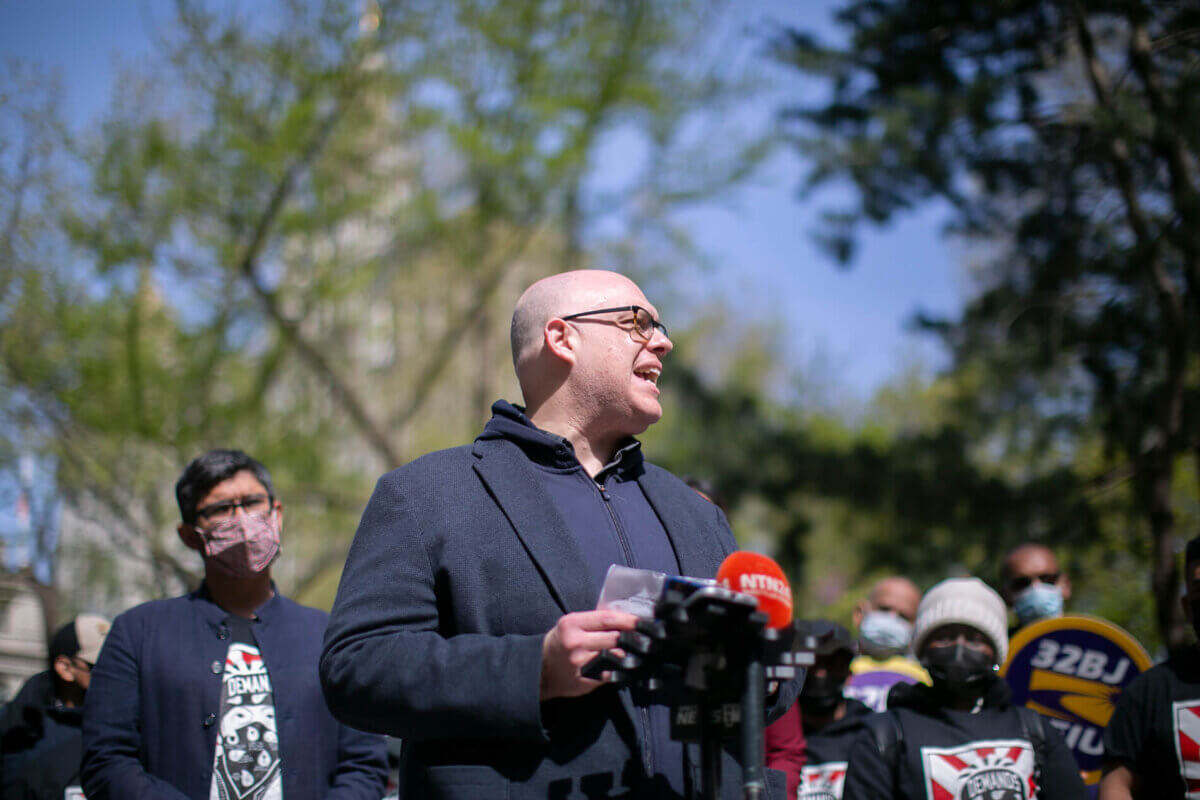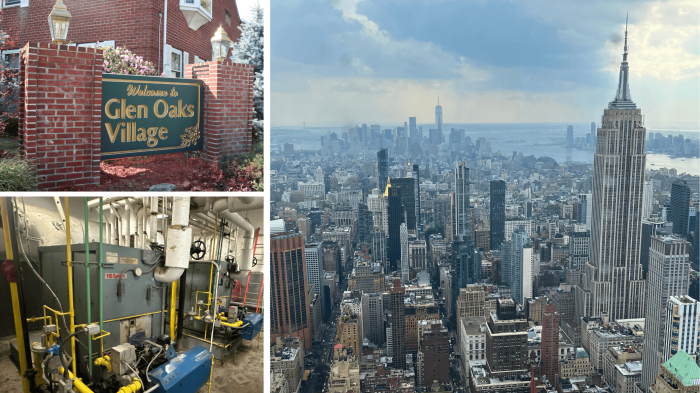The city Department of Environmental Protection (DEP) is threatening to shut-off the water to commercial buildings and private homes where the owners have failed to pay the city millions in water bills, Mayor Eric Adams and DEP Commissioner Rohit Aggarwala announced on Monday.
DEP started the process on May, 1, by distributing water shut-off notices to the owner of a commercial building as well as to the owners of two “mega mansions” who collectively owe the city more than $500,000.
The commercial structure is the Decoration & Design Building — home to over 100 design industry showrooms — located at 979 Third Ave. in Manhattan. At 7:30 a.m. Monday, the mayor said, the building owner was hit with a notice to either immediately make good on over $400,000 owed to DEP in unpaid water bills accumulated over the past year or enter into a payment agreement.
Building owners that fail to do either by May 15, risk having their water shut off.
“We cannot allow mega buildings in particular, and mega mansions, to fail to pay their water bills anymore,” Adams said.
Adams highlighted the offending buildings Monday during a City Hall news conference, where he announced his administration is extending a water bill amnesty program by another month — through May 31. The program forgives interest penalties—either in part or in their entirety—accumulated by delinquent owners who start settling up with the city.
The initiative was necessary, Aggarwala said, because the city’s water system is funded by direct bills instead of taxes, meaning it needs payments from the owners of the approximately 800,000 buildings across the five boroughs to keep the taps on. When building owners don’t pay their share, he added, it could lead to rate increases for everyone.
So, with $1.2 billion in outstanding debt that built up during the pandemic, the city launched the program to start recouping those dollars.
Shortly after receiving physical notice of their outstanding debt, Adams said, the owners of the Decoration & Design Building came around, contacting DEP that they were ready to pay up.
“Approximately around 10:30 a.m., we received a response of attempting to rectify the outstanding amount,” the mayor said. “And if you can see the Decoration & Design Building, that’s worth over $250 million, [yet] they owe New York City more than $400,000 in unpaid water bills. Those are real dollars and we have to recoup them to continue the water service that we are providing.”
“We don’t want to shut off anyone’s water,” he added. “The goal is to keep water on. But we can’t overburden taxpayers who are following the rules.”
A representative for the Decoration & Design Building promptly hung up the phone when contacted by amNewYork Metro for comment. A message left with the building’s general phone number wasn’t returned by publication time.
In addition to the commercial building, DEP also gave notice to the owners of two homes the mayor described as “mega mansions.” One is a Bronx property valued at $11 million that owes about $129,000 in unpaid water bills and the other is a Brooklyn home valued at over $3 million that owes $103,000 — according to a City Hall spokesperson who declined to give the exact addresses of either property, citing the owners’ privacy.
The owners of the building and homes given notice on Monday are just the tip of the iceberg, Aggarwala said. Those who own the top 50 office buildings behind on their water bills owe the city a cumulative $7 million, while the proprietors of the top 50 private homes owe $8.7 million.
“Some of these higher end properties, they just don’t want to talk to us,” Aggarwala said “They are using their water bill as a form of cash management, which is just unfair because that means they are, without consent, borrowing money from their neighbors.”
Aggarwala said that threatening to shut off a building’s water is a last resort that comes after many attempts to contact its owners to amicably settle their outstanding bills.
“There’s a long train of things we do, the number of outreaches we make, the phone calls, the letters, the warnings,” Aggarwala said.
While any building owner who is more than 180 days overdue on a water bill could face shut-offs, Aggarwala said his office is prioritizing those that owe over $100,000, that also have very high property values.
“We are starting by targeting buildings with very high property values because our goal here is to get the money in the door,” he said. “So, we are starting with buildings where we believe there’s an ability to pay.”
Adams said his administration is extending the amnesty program — which launched in January and was supposed to wrap up April 30 — by another month, because it has so far been successful in allowing New Yorkers to pay down their water bill debt without breaking the bank. He said the program has brought in $80 million to date and has helped people save over $12 million in interest.
A collective $1.2 billion in unpaid water bills was owed by roughly 200,000 New Yorkers before the program started in January, according to the mayor’s office. About 86,000, or 40%, of them participated in the program and saved money by paying off their bills. However, the city is still owed $800 million.
The mayor said his administration will be spreading the word about the program’s 30-day extension to get more New Yorkers enrolled.
“We are making sure every New Yorker knows about our amnesty program with our aggressive outreach,” he said. “And the goal is to get as many people as possible signed up so we can keep your water flowing. And at the same time, keep the money flowing, so we can have a system that we all can be proud of.”
Read more: Big Apple Awards Celebrate NYC Teachers’ Excellence































